When widespread coronavirus restrictions first began to take effect last month, I was in an airport.
 I suddenly became acutely aware of people around me serving food, cleaning tables, maintaining equipment, and many more. Clearly, I thought, I have not appreciated such people enough or sufficiently expressed my thanks. They (along with other more obvious examples of first responders and medical staff) were putting their health on the line to serve me and others, to keep society functioning, even if it was at a reduced level.
I suddenly became acutely aware of people around me serving food, cleaning tables, maintaining equipment, and many more. Clearly, I thought, I have not appreciated such people enough or sufficiently expressed my thanks. They (along with other more obvious examples of first responders and medical staff) were putting their health on the line to serve me and others, to keep society functioning, even if it was at a reduced level.
What they were doing was courageous, putting their own well being at risk for the sake of others. I also realized, however, that some of them had no choice. They could not afford to stay at home without pay for weeks or months. They had no savings, no family safety net to fall on. They could not do their jobs virtually via laptop and Zoom.
One grocery store worker feels the label of hero is misplaced for her and others. And she raises good questions. At least hazard pay should be a consideration for such workers.
Heroes, nonetheless, may not always look like what we expect. They do not always arrive with a uniform, a cape, a superpower, magical abilities, or exceptional cleverness.
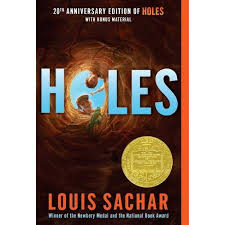 In Louis Sachar’s novel, Holes, Stanley Yelnats is a wonderful, unexpected hero. He is a bit overweight, awkward, doesn’t seem particularly smart or charming, has little by way of leadership skills, and in fact often gets picked on by other kids. He is almost the definition of ordinary, if not forgettable. Yet the whole tale of injustice, bad luck, and obsession hangs on his steady, unflappable, and forgiving character.
In Louis Sachar’s novel, Holes, Stanley Yelnats is a wonderful, unexpected hero. He is a bit overweight, awkward, doesn’t seem particularly smart or charming, has little by way of leadership skills, and in fact often gets picked on by other kids. He is almost the definition of ordinary, if not forgettable. Yet the whole tale of injustice, bad luck, and obsession hangs on his steady, unflappable, and forgiving character.
How? Stanley does not take life too personally—the good or the bad. He also makes room to help those in need. Zero, for example, wanted to learn to read. Stanley helped him despite ridicule and potential punishment. Finally, Stanley has grit. He doesn’t give up. He undramatically keeps plodding ahead, moving forward, when others would have stopped.
Years ago I saw the movie based on this book. As I read it recently for the first time, I remembered some of the story. But I found it to be a splendid reminder that even ordinary people can be heroes by virtue of their ordinariness.
image credit: Pixabay Scottslm

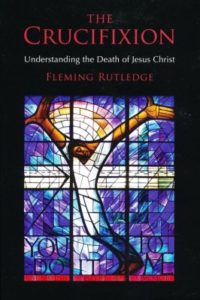
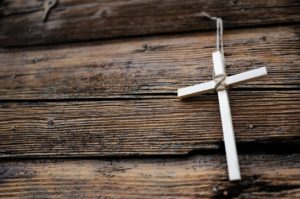 In Lent we remember that all have sinned. None are righteous. As enlightened as I am, certain kinds of people infuriate me or repel me. That is not a morally superior response. That falls short.
In Lent we remember that all have sinned. None are righteous. As enlightened as I am, certain kinds of people infuriate me or repel me. That is not a morally superior response. That falls short. 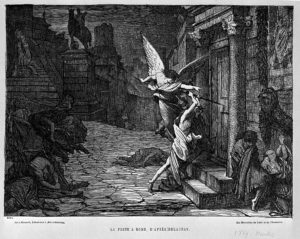 But there was one minority group that responded very differently to both plagues. They stayed in the cities. Rather than avoiding the sick, they cared for them. As a result of receiving simple food and water when the ill were too weak to look after themselves, many survived when others who were forsaken by their friends and families died at a much higher rate. Some of those in this special group of caretakers also contracted the disease, however, and died. Why did they do this, knowing the danger? Why did they act so differently than many of their neighbors?
But there was one minority group that responded very differently to both plagues. They stayed in the cities. Rather than avoiding the sick, they cared for them. As a result of receiving simple food and water when the ill were too weak to look after themselves, many survived when others who were forsaken by their friends and families died at a much higher rate. Some of those in this special group of caretakers also contracted the disease, however, and died. Why did they do this, knowing the danger? Why did they act so differently than many of their neighbors? 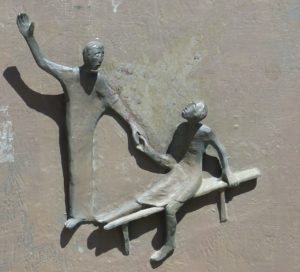 Israel was to openly accept people of every ethnic group and nation to Jerusalem as Jesus reminded them: “My house will be called a house of prayer for all nations” (Mark 11:17). We as Christians should also gladly receive people from all nations to our churches, our communities, and our countries. We can fulfill the Great Commission not only by going to all nations but also by encouraging people of all nations to come to us. In this way they can hear and see and experience the gospel in ways that may not be possible in their home nations, where Christianity is illegal or suppressed. This is what Christians do—what mission-minded Christians do.
Israel was to openly accept people of every ethnic group and nation to Jerusalem as Jesus reminded them: “My house will be called a house of prayer for all nations” (Mark 11:17). We as Christians should also gladly receive people from all nations to our churches, our communities, and our countries. We can fulfill the Great Commission not only by going to all nations but also by encouraging people of all nations to come to us. In this way they can hear and see and experience the gospel in ways that may not be possible in their home nations, where Christianity is illegal or suppressed. This is what Christians do—what mission-minded Christians do.  Though it was the Romans who hoisted Jesus on a cross, many Christians down the centuries have harbored anti-Jewish sentiment, labeling them Christ killers. Pogroms, persecution, cruelty, and the holocaust have been the terrible results.
Though it was the Romans who hoisted Jesus on a cross, many Christians down the centuries have harbored anti-Jewish sentiment, labeling them Christ killers. Pogroms, persecution, cruelty, and the holocaust have been the terrible results. At the cross Christ defeated these, disarming them and bringing them into submission (
At the cross Christ defeated these, disarming them and bringing them into submission (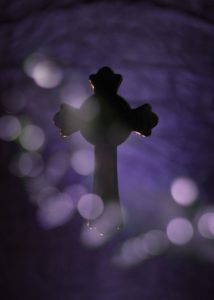 One thing that ironically gives me a glimmer of comfort is that the Bible doesn’t attempt to answer those sorts of questions the way so many try. When Job made such a challenge to God, God did not respond with the kind of answers we or Job might want. Instead he says to Job, my wisdom is seen in how I made the immensities and intricacies of the heavens and earth. Can you trust my wisdom for everything you don’t see?
One thing that ironically gives me a glimmer of comfort is that the Bible doesn’t attempt to answer those sorts of questions the way so many try. When Job made such a challenge to God, God did not respond with the kind of answers we or Job might want. Instead he says to Job, my wisdom is seen in how I made the immensities and intricacies of the heavens and earth. Can you trust my wisdom for everything you don’t see? Jagged edges appear elsewhere too. A family member gets ill. We feel betrayed by a friend. Someone rear ends us. These and more pile up till we snap back harshly at those we love most. We fail to live up to our own standards of honesty, loyalty, charity.
Jagged edges appear elsewhere too. A family member gets ill. We feel betrayed by a friend. Someone rear ends us. These and more pile up till we snap back harshly at those we love most. We fail to live up to our own standards of honesty, loyalty, charity. The verb Rutledge frequently uses in her book to convey this action which justifies and makes righteous is to rectify. The world and all of us in it need to be rectified, to be set right.
The verb Rutledge frequently uses in her book to convey this action which justifies and makes righteous is to rectify. The world and all of us in it need to be rectified, to be set right. 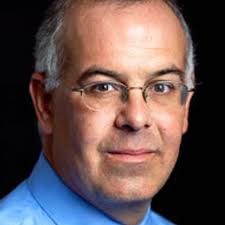 I am always collecting strings on about seven or eight columns. I’ve got piles of paper for gun control, immigration – whatever the issue of the day is – and then some intellectual things or cultural things. I’m collecting that string and I have a column due every three and a half days. . . . Based on what happens on the day before it’s due or the day it’s due, I’ll decide “Okay, I’m gonna do this one.” I have all this paper, documentation, notes I’ve taken from interviews, and I think geographically.
I am always collecting strings on about seven or eight columns. I’ve got piles of paper for gun control, immigration – whatever the issue of the day is – and then some intellectual things or cultural things. I’m collecting that string and I have a column due every three and a half days. . . . Based on what happens on the day before it’s due or the day it’s due, I’ll decide “Okay, I’m gonna do this one.” I have all this paper, documentation, notes I’ve taken from interviews, and I think geographically. I initially had at thirty or forty groups which I consolidated into about twenty. As I did so, I noticed they fell into four large categories—the craft, the art, and the spirituality of writing plus practical things writers need to know about publishing.
I initially had at thirty or forty groups which I consolidated into about twenty. As I did so, I noticed they fell into four large categories—the craft, the art, and the spirituality of writing plus practical things writers need to know about publishing.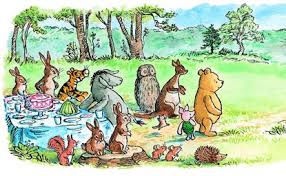 Whether due to lack of discipline, lack of focus, or lack of confidence, I only managed to struggle through one chapter. I still remember the look on my teacher’s face and the question when I finished my much truncated report: “Is that all?” Yes, I had to admit, head hung low, that was all.
Whether due to lack of discipline, lack of focus, or lack of confidence, I only managed to struggle through one chapter. I still remember the look on my teacher’s face and the question when I finished my much truncated report: “Is that all?” Yes, I had to admit, head hung low, that was all.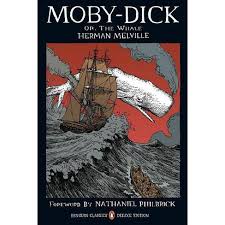 Yet one year later, in the summer before high school. I thought it would be a good goal to read
Yet one year later, in the summer before high school. I thought it would be a good goal to read